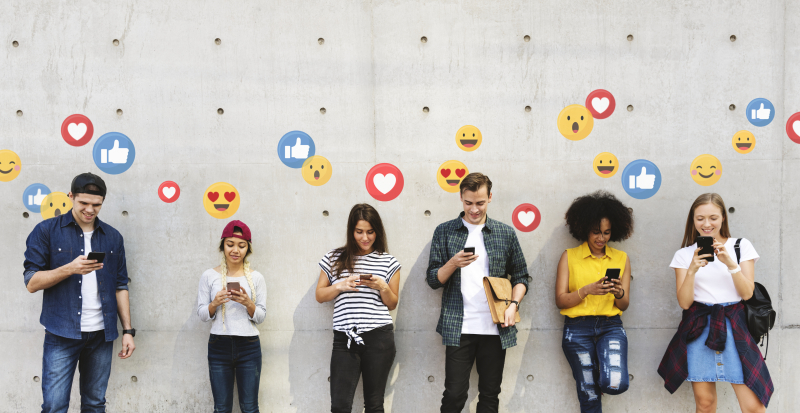Social Media's Influence on Youth Culture
Social media has significantly reshaped youth culture, affecting various aspects of young people's lives. This essay analyzes the profound impact social media has on the cultural, social, and psychological dimensions of today's youth. It serves as both a tool for positive change and a platform with potentially negative consequences.
At its best, social media promotes creativity and connectivity. Young people use platforms like Instagram, TikTok, and YouTube to express their creativity, showcase their talents, and share their experiences. This digital expression has democratized content creation, enabling anyone with a smartphone to become a content creator. According to the Pew Research Center, 45% of American teens say that social media has a positive effect on their lives. Itis primarily due to the opportunities for self-expression and community building (Pew Research Center, 2018).
Moreover, social media has redefined how young people communicate and interact. It breaks down geographical barriers, allowing youth to connect with peers across the globe. This exposure to diverse cultures and ideas fosters a sense of global community and understanding. A report by Common Sense Media reveals that more than half of American teenagers have made new friends online. The number illustrates social media's role in expanding social networks beyond physical boundaries (Common Sense Media, 2019).
However, the influence of social media is not solely positive. It also presents challenges, particularly concerning self-image and mental health. The constant exposure to curated images and lifestyles can lead to unhealthy comparisons, affecting teenagers' body image and self-esteem. The American Academy of Pediatrics has raised concerns about the impact of social media on the mental health of young individuals. It can contribute to anxiety and depression (American Academy of Pediatrics, 2017).
Another significant issue is the spread of misinformation. Young people, who often rely on social media for news, can struggle to differentiate between credible information and fake news. A study by the Stanford History Education Group found that a majority of students couldn't identify the credibility of news sources on social media. That highlights the need for better digital literacy education (Stanford History Education Group, 2016).
In conclusion, social media's influence on youth culture is multifaceted. It offers platforms for creative expression and global connectivity while also posing risks related to mental health and misinformation. Navigating this digital landscape requires critical thinking and media literacy.
References
- Common Sense Media. (2019). The Common Sense Census: Media Use by Tweens and Teens. https://www.commonsensemedia.org/research/the-common-sense-census-media-use-by-tweens-and-teens-2019
- Pew Research Center. (2018). Teens, Social Media & Technology 2018. https://www.pewresearch.org/internet/2018/05/31/teens-social-media-technology-2018/
- American Academy of Pediatrics. (2017). Media and Young Minds. Pediatrics, 138(5). https://doi.org/10.1542/peds.2016-2591
- Stanford History Education Group. (2016). Evaluating Information: The Cornerstone of Civic Online Reasoning. https://sheg.stanford.edu/upload/V3LessonPlans/Executive%20Summary%2011.21.16.pdf












